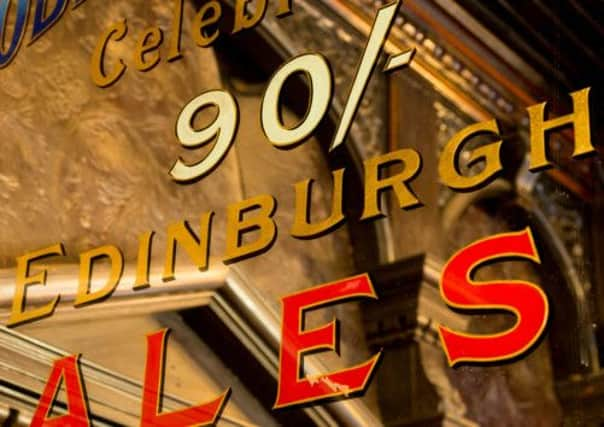Edinburgh pubs can be best bar none


Four million tickets are sold annually and hundreds of thousands more people descend on the capital to enjoy the diverse range of performances.
Edinburgh’s festivals generate £261 million of additional tourism revenue for Scotland and £245m for the capital alone. A major benefactor of this income is the licensed trade. Tourists and locals alike flock to enjoy Edinburgh’s warm hospitality and that’s why the industry must continue to capitalise on this opportunity and raise its standards to create a vibrant leisure economy.
Advertisement
Hide AdAdvertisement
Hide AdThere are nearly 20,000 people employed in Edinburgh’s food and drink sector (according to the City of Edinburgh Council). In the city’s Grassmarket area alone there are 36 bars, pubs and hotels. Already 19 of the area’s licensed premises have signed up to the Best Bar None Scheme, which awards venues bronze, silver or gold accreditation depending on their commitment to safety, responsible drinking and customer care. The owners and managers of these outlets recognise the importance of creating the highest standards and a safe and enjoyable environment for patrons.
At a time when the city is flooded with visitors, it’s crucial for the city’s reputation that bar and pub staff offer the best possible experience. Whether that’s recommending a new tipple or helping them get home safely there’s a responsibility on the entire industry.
As Police Scotland prepares to launch its alcohol strategy, Best Bar None is heightening its efforts to reward licensed premises for high standards. But it is also a collaborative effort. The Best Bar None scheme works in partnership with the Scottish Government, Police Scotland, Scottish Fire & Rescue, Licensing Standards/Trading Standards, the Scottish Licensed Trade Association and other organisations, to help reduce alcohol-related harm, crime and disorder. It is funded by Scottish drinks producers and distributors, showing their commitment to supporting customers.
But, above all, the onus is on premise owners to improve their service through schemes such as Best Bar None and in turn boost their business and create a booming industry.
• Mandy Haeburn Little is director of Scottish Business Resilience Centre